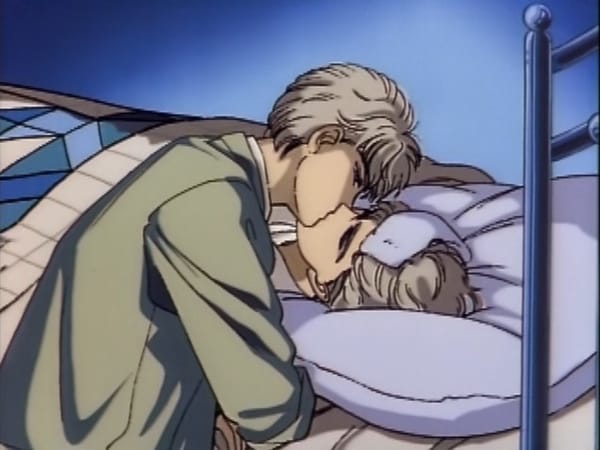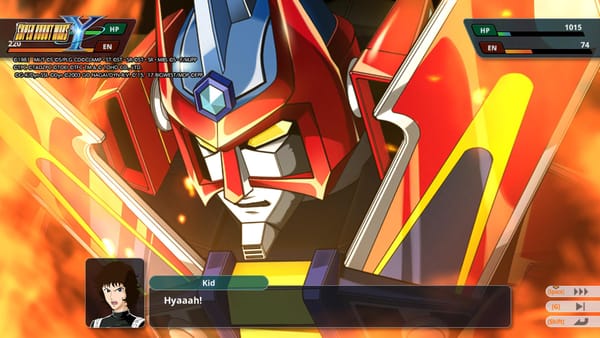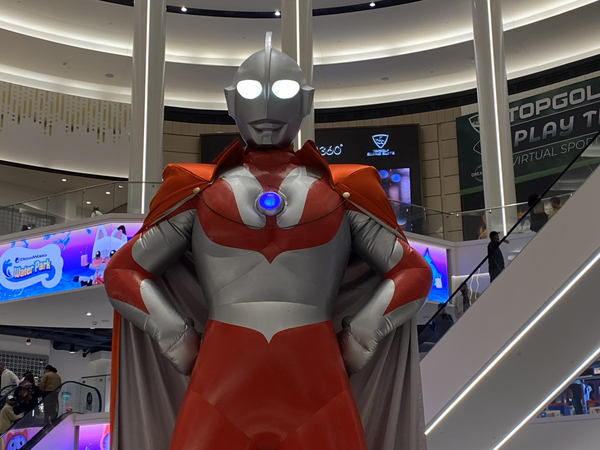Play Journal: Granblue Fantasy Versus Rising
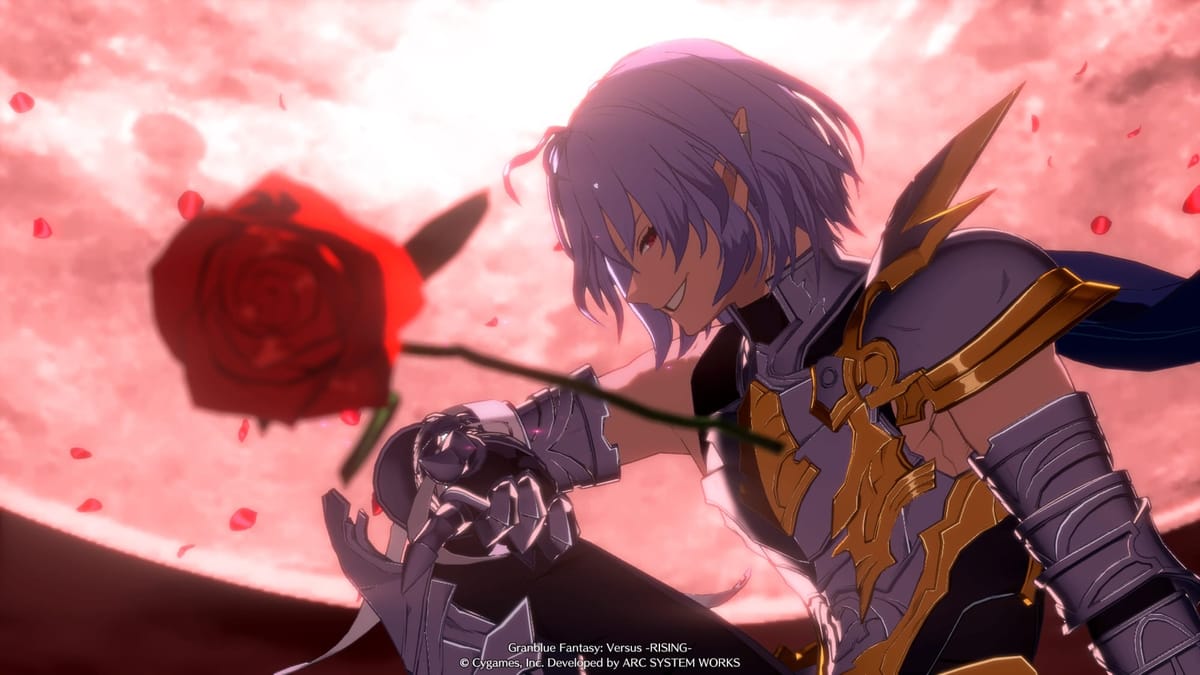
I’ve had to unlearn the way I used to play Granblue Fantasy Versus in the sequel, Rising. GBVS was a fusion of a classical Street Fighter style— walk back and forth, poke at each other with sticks— and easy, flashy combos like those you’d see in an “anime” style game such as Guilty Gear or Blazblue, but with very little of the learning curve.
Rising takes the original game and adds a lot of limited-use, but extremely powerful, tools that allow characters to dish out a lot of damage with the slightest jab or counter-punch, making the game much more aggressive. The theme of Rising is arguably “use it or lose it”; the gains are too big to let the tools wait for later. Let your opponent hit you with one of these moves and you’ll be in a world of pain, so it’s better that you push the attack and hope you’re the one who hits first. Defensive play styles don’t particularly pay off here. (Footnote: I’m not even getting into Nier, one of the most bullshit FG attackers I’ve seen in years.)
Tools too strong not to use (1): Skill button
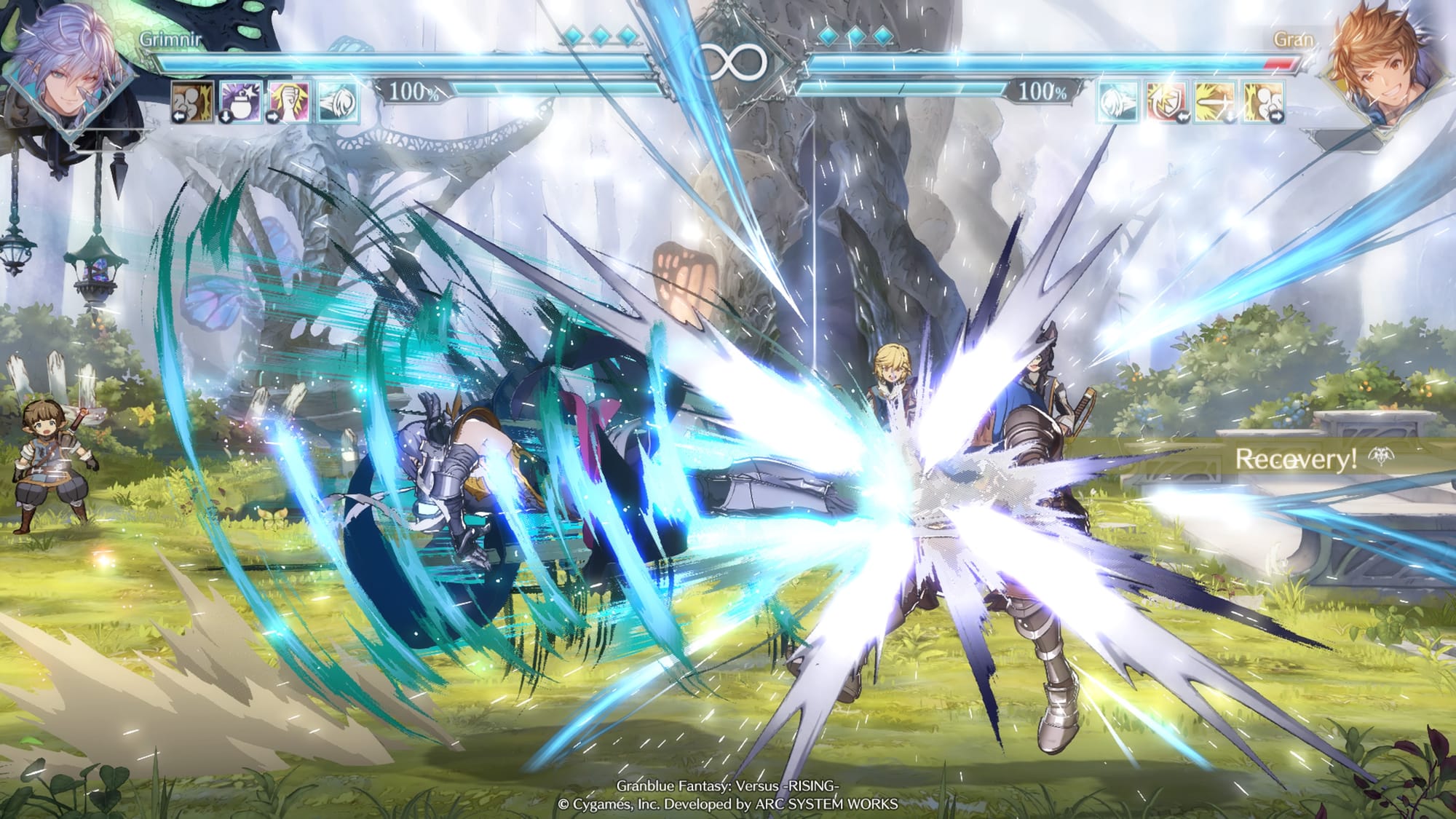
I’m going to lead with something from the previous game: the “skill” button that allows players to perform special moves with a single button press. Unlike the in previous game, moves performed with the “skill” button aren’t weaker than their traditional counterparts at all, making the button effectively superior. This is a move GBVS seems to have made following Street Fighter 6’s Modern mode, but unlike SF6 there’s no handicap to “modern” controls at all.
If you’re an old school type like myself you like controller motions, and it’s hard to move away from them. But in competition terms, pressing one button is objectively faster than pressing three in sequence. (In SF6 we say “don’t jump on a Modern controls player”, because it’s noticeably easier for them to anti-air you.) I play Zeta, and basic hit confirms off simple pokes go from very difficult with classical commands to totally effortless with the skill button. That’s a lot of free damage for me! And for other characters, the sheer convenience of a single-button, instantly invincible anti-air (or even a one-button super move!) is way too strong to overlook.
I use a little bit of traditional controls and a little bit of the skill button, but if you’re stubborn about it and refuse to use the skill button at all, you’re really putting yourself at a disadvantage.
Tools too strong not to use (2): Raging Strike/Chain
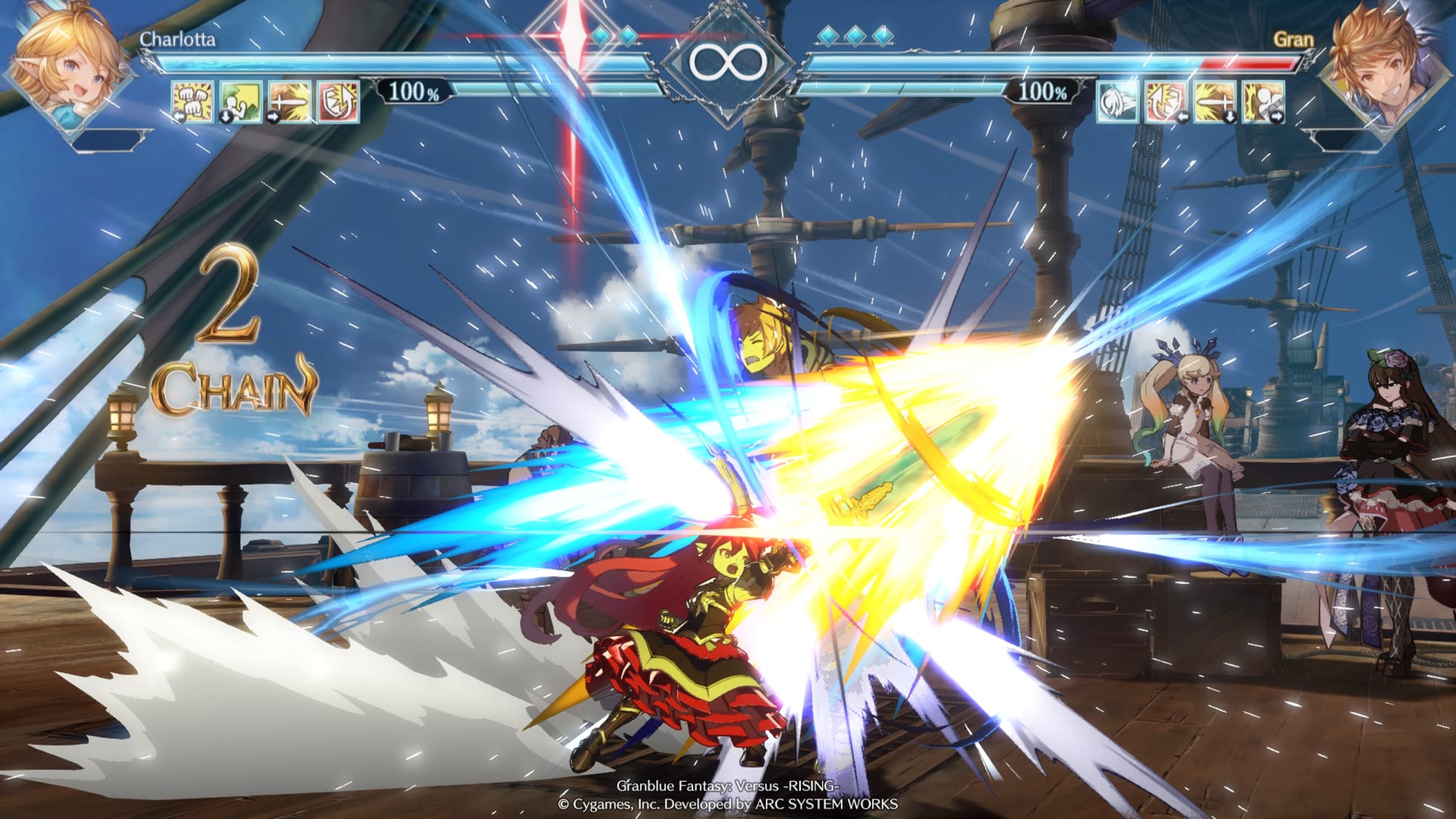
Rising also introduces a risk-reward system that guarantees players can almost always turn any hit into major damage, while burning off some of their defenses in order to get that damage.
Using the powerful Raging Chain combo, I can extend most stray hits, even a single jab, into a juggle combo. The trade-off is that in addition to spending a negligible amount of super meter, I also lose one of the three “brave” crystals at the top of the screen. The more crystals I spend, the more damage I take from hits later.
If I lose all three crystals, I’m effectively made of glass for the rest of the round: any decent hit will kill me. This can often set up a comeback scenario where a player who's been getting beat up all match uses all their resources on a single big combo against a player who's exhausted all their crystals, turning around the round in a single strike. But more often, he who strikes first puts down their opponent before they get hit back.
So despite the sacrifice, Raging Chain is almost always worth it, at least the first time. Pouring all your resources into the rest of the combo after using Raging Chain will probably take half your opponent’s life bar, as opposed to landing a small return off a minor hit without using any resources. Putting yourself into real danger with that second or third RC use is another matter, though; it’s a very aggressive move, and you’d better be at least close to KOing your opponent.
My instinct in GBVS was to preserve super meter for the end of the match, but in Rising you need to spend all your resources right now, every time you can. It’s been tough to adjust to that style of play, but the payoff is big enough that I’m getting used to it.
Tools too strong not to use (3): Ultimate Skills
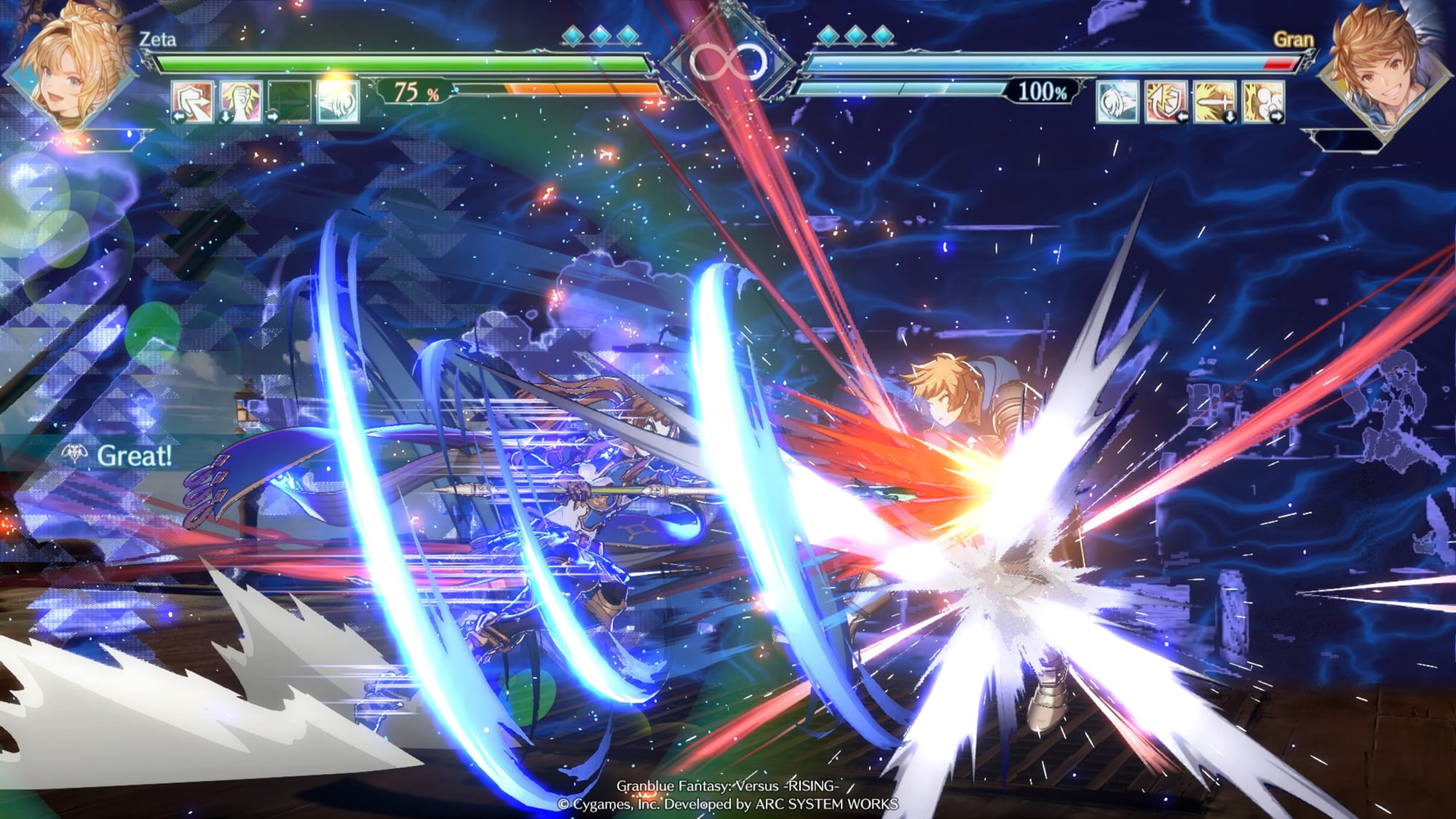
It feels like how well a character carried over from GBVS to the sequel depends largely on what kind of Ultimate Skills they got.
An Ultimate Skill is an even more powered-up version of a regular special move that costs 50% meter to use. It’s all over the place how useful these moves are. Some ultimates are so good they become cornerstones of a character’s play, and others aren’t worth the resources.
Zeta, my current main, has good Ultimate Skills. In fact, they’re stupid good. If you’re mid-combo and you have 50% meter you should always use Zeta’s 6SH ultimate ability to slam the opponent into a wall and get a combo extension that does almost as much damage as if you’d used a super move.
A lot of the good Ultimates fall under this banner: if you have 50%, just use this damn move because the damage is so good. Unlike its predecessor, Rising gives players back their super meter rapidly after spending it, and you won’t really feel the consequences of spending half meter.
Tools too strong not to use (4): Dashing light attacks
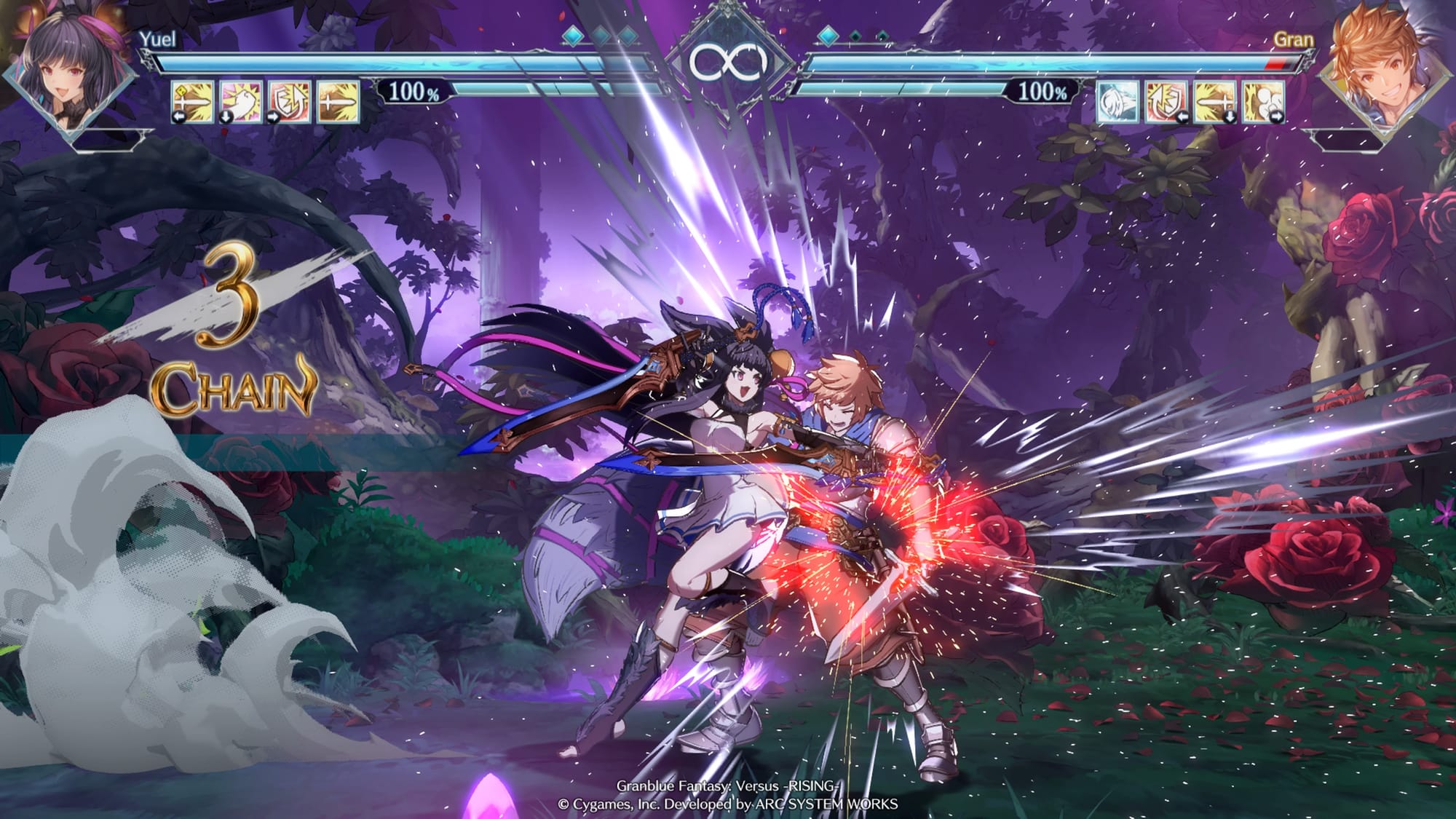
But the move that really makes the pace of the game is one of the most basic. Rising added running attacks for every character that are largely the same for every character. Dashing medium is a surprise long-range low attack that sweeps the opponent off their feet. Dashing hard attack is an all-or-nothing charge. But the powerful one is actually the dashing light attack.
The dashing light attack is as fast as a standard jab, closes in on the opponent to point blank range, can’t be dodged, and recovers so quickly on block that the attacker can keep attacking. Should it hit, god forbid, the attacker is guaranteed a full point-blank combo. It’s a move so strong it violates the rock-paper-scissors equilibrium of the fighting game, rendering offense one-dimensional: after all, if you’re on offense, you should just use dashing light attack. Most of the time you’ll be right.
More than any other move, it defines the way you play, and you're losing out big time if you're not using it. It’s also a dumb move. It’s so dumb that I’m sure the designers know. (They definitely knew, when they were designing Nier, that something was very wrong.) But they’ve decided to make a game that’s based on really, really powerful tools. That’s what we’re playing, and as usual in fighting games, our choices are to live with it or to move on.
Burnout play style
I said when Street Fighter 6 came out that you should just burn your Drive meter hard, but the game developed past that pretty quickly as players learned how to force each other into burnout, apply merciless pressure and force chip damage to take advantage of their opponents’ burnout, overall making them truly suffer for entering that state.
In Rising though, you really should just burn out your meter. Aside from spending all your crystals and bleeding out, there’s really very little cost to using your resources. EX moves’ cooldown is brief: there’s no reason to save them. Super meter is so plentiful that you’ll usually have at least enough to use a Raging Chain, if not an Ultimate Skill. Spend what you’ve got when you land a hit, and you might just finish off your opponent completely before it can come back to bite you.
Zeta
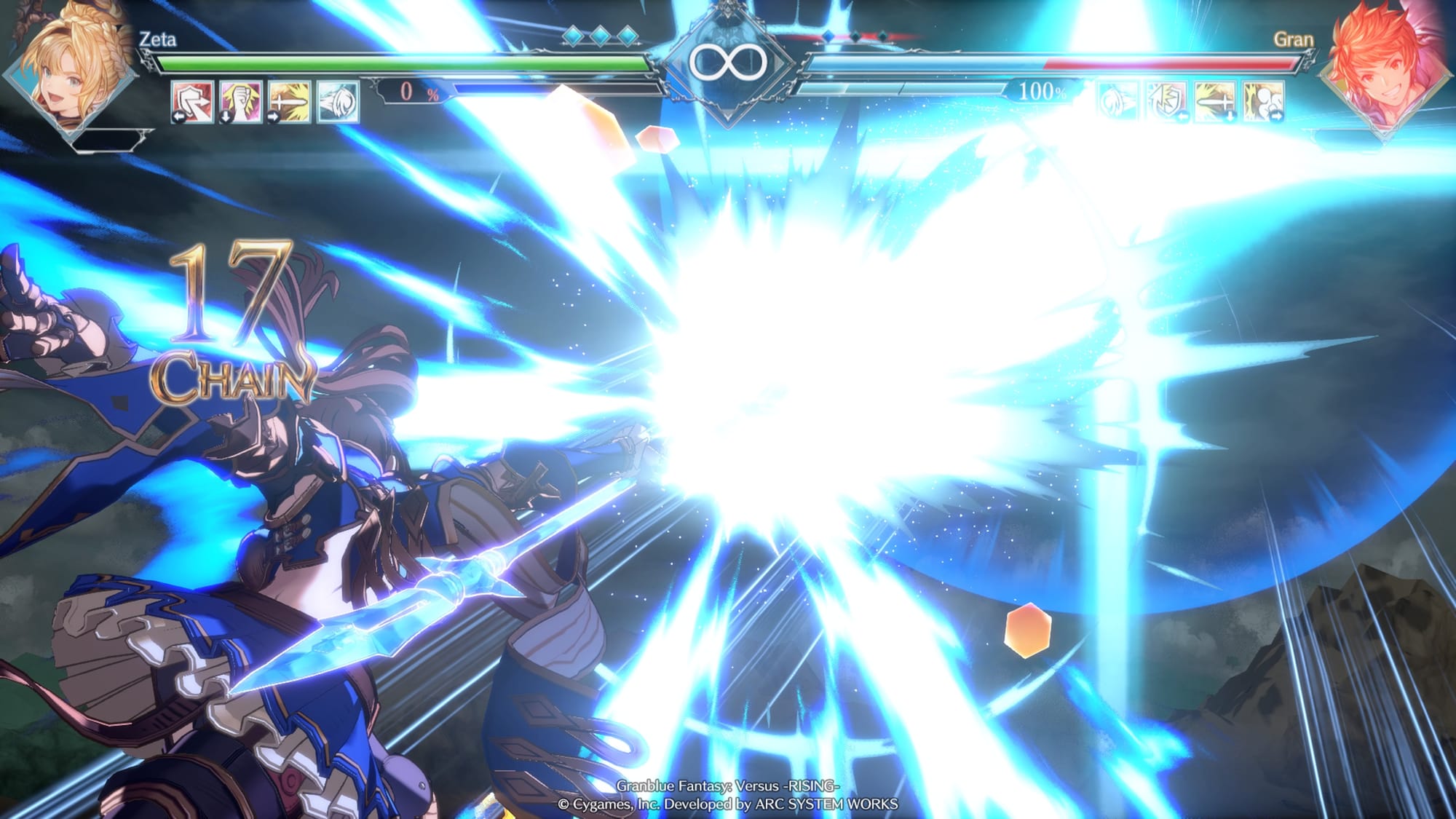
I am playing Zeta because I play Chun-Li in SF6 and Zeta is basically modeled after the Chun-Li archetype. Though she’s a spearswoman and not a kung-fu practitioner, Zeta’s play style is close to the same. Zeta’s mighty spear stands in for Chun’s mighty legs, poking mercilessly away at the opponent before pushing them to the corner for real punishment.
The big difference is that in SF6, when I know that low medium kick is going to hit, I decide whether this is a regular poke or whether I’m going to dash cancel it into some real damage. When I’m low on Drive and they’re high on HP, I’m not going to over-extend. Chun-Li's style reaches a graceful equilibrium of offense and defense.
In Rising, I’m working to abandon this rule and just cancel “low medium kick” (2M)— hell, every big hit I get— into the ultimate, every time. Because if that first move hits, the ultimate is always the right thing to do.
When I spend meter like everyone else does, I do big damage and I win. When I don’t, and lapse into playing Rising slow and patient like I used to play GBVS, I miss out on damage and lose. Keeping the opponent back for 30 seconds and shaving away their health is not actually a great battle plan when the opponent can kill you off two random pokes.
It remains to be seen how I actually feel about this style of play; I’m not even good at it yet, so I suppose I’ll find out as I master it.
Carrying over from the old game, Zeta is a terror in the corner, with an easy safe jump off her throw that leads into all kinds of terrifying mix-ups using her air-to-ground stomp. This stuff is mean and it feels great to pull off. Arguably, how good an advanced tactic feels in a fighting game is related to how unfair it is the opponent.
State of Rising
Rising feels like a work in progress at this point in its life, which is to be expected from a modern launch-day fighting game. The final changes to the original GBVS were pretty experimental too. Launch is when everything looks exciting and new, and it’s also when overpowered new characters roam the hills. (I keep mentioning it, but Nier is so ridiculous that it’s honestly impossible to take competitive Rising seriously.)
I also tried Charlotta, and the game in its current state felt like it had moved past her: if small-stuff has severe range handicaps but she hits like a truck, and now everybody in the game now hits like a truck, what then of small-stuff? Likewise, I watched the best Metera in the first big Japanese tournament and had no idea what she was even supposed to do against some of the oppressive newer characters.
Still, I don’t think that the way forward for this game is to tone down the overpowered abilities (maybe dashing light, I do think dashing light is just bad), but rather to try and scale up the power of other characters' Ultimate Skills to be as powerful as the standouts.
Note: since leaving Substack we've lost some amenities, like the comment section! I can graft in one of various commenting clients but I've used Disqus and I don't want to subject you to Disqus. I am going to drop in a link to the Cohost post about this newsletter, and we are going to use that as the comment section.
